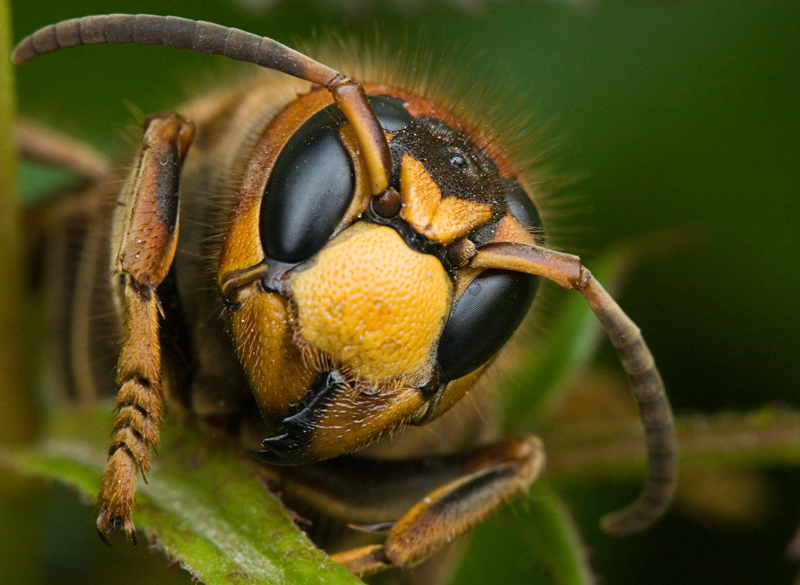The Purpose of Wasps
Posted on September 5, 2013
Let’s not beat around the bush folks, virtually everyone hates wasps, more so than any other living creature, except perhaps, the common rat. Wasps are perpetually aggressive at this time of year, making pub gardens and picnic areas places to avoid as summer draws to a close.
Just this weekend, Dan, the spin bowler at our cricket club, had his “Young player of the year” celebrations cut short by inadvertently drinking from a lager can at the same time as a wasp. Unfortunately there was only one winner and I’m sure you don’t need confirmation that sadly, on this occasion, it wasn’t Dan.
As everyone inspected his swollen upper lip with a mixture of concern, titters of mirth and outright relief that Dan was the victim and not them, the common consensus was that the wasp was a pointless insect that had one purpose in life and that was to sting either humans or the noses of innocent dogs.
I sometimes wonder who is the aggressor in the wasp war. Is it human race for beating it senseless with a Sunday supplement or suffocating it in a pint glass, or is it the wasp for what would seem to be the indiscriminate targeting of innocent Civilians. Unfortunately, the wasp population seems dismissive of engaging in peace talks, so the only route to solving the issue may be to allow the USA to illegally fire some cruise missile at them and see what happens.
With their track record, they would probably obliterate a Bee sanctuary.
Friend or Foe…Is the Wasp a Victim of Bad PR?
Anyway, as a long standing champion of the underdog, I decided investigate what the key objectives of a wasp actually are. Is it just a myth that their sole purpose is to sting people and cause pandemonium around children munching on a toffee apples, or are they in fact, undervalued high achievers in the food chain and simply the victims of piss poor public relations?
Via Google and Wikipedia I soon discovered an individual (they are called entomologists) who knows a thing or two about wasps and my suspicions of the bad press these vicious bastards receive was quickly confirmed; they do indeed have purpose, in fact, they make several key contributions to the food chain.
Unsurprisingly, most wasp species are predators but they are actually functioning for the purpose of controlling many other insect species. They are apparently very effective parasitoids and because of this efficiency they have been used for decades as biological control agents. (the word parasitoid keeps coming up as a spelling error but I am going to stick with it, as it is the word this entomologist guy continues to use).
Many crop pests, including scale insects which cost millions globally, are controlled by wasps. Apparently, without these predators, tomatoes, oranges, tobacco and many other important crops would become incredibly scarce. You don’t need to be an economist do come to the conclusion that hyperinflation on these products would be inevitable. Hooray for the wasp I hear you cry.
Apparently, the one vital method of efficiency they engage in is to lay an egg on the back of a caterpillar. Throughout this process (called polyembryony) the egg multiplies itself, producing hundreds of larvae. These larvae hatch, kill the caterpillar, and pupate. Try and stick with this if you can, it is quite interesting (with heavy emphasis on the word quite).
Once the process is complete, the newly formed wasps emerge as feisty as ever and go out in search of their very own caterpillar to deposit eggs on. After a year, there are millions of these wasps and they are naturally able to control the number of potentially devastating pest species that include, caterpillars, long horn beetles, cider drinkers and sexually dubious train spotters with a fetish for marmalade sandwiches.
In the natural environment, most moths and beetles have some species of wasp that is their specific parasitoid. Without these parasitoids, longhorn beetles would reduce the forest to sawdust and caterpillars would devour every leaf off of every plant they can find. Wasps act to control their numbers, and keep a balance between the pests and the hosts.
I really didn’t know this but apparently, certain wasps (Like the one that merrily plunged its sting in to the the lip of Dan) are pollinators and actually ensure the survival of many plant species, just like their very close more celebrated relatives in the bee community. However, I can’t confirm that and it may have just been a propaganda fueled press release from a sinister wasp spin doctor.
So, all you wasp haters out there, the next time you are stung on the lip or the eyelid, don’t scream obscenities at the poor wasp, it is just one of God’s creatures going about its daily business until you tempted away from its day job. The real issue it has, is that just like humans, it can’t resist the temptation of something sweet.
Show some empathy folks…Wasps have the same addiction issues with Haribos as we do.
* Next week, the Daddy Long Legs


Trevor
September 5, 2013 (10:18 am)
Nice post Bob. I learnt something!
Looking forward to the daddy longlegs one – can you also do one on earwigs too as part of your pointless insects series?